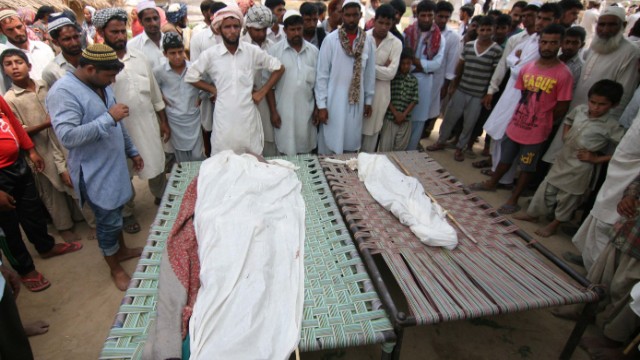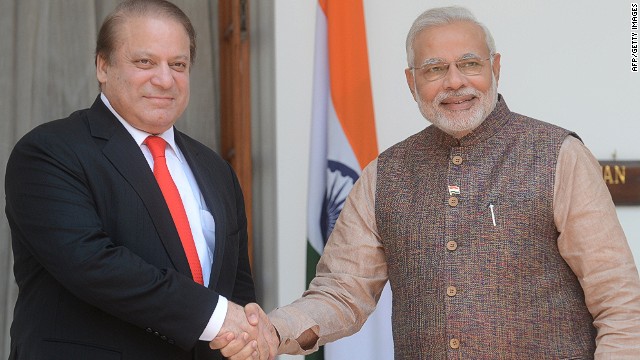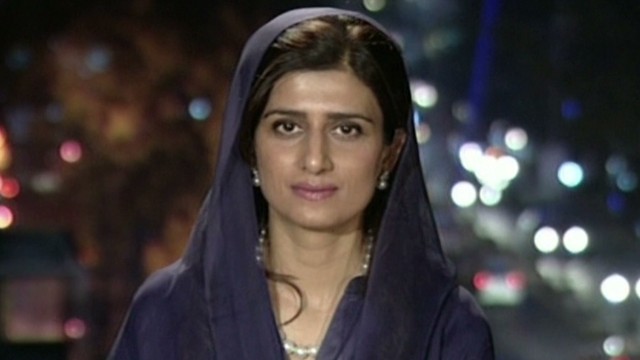Story highlights
- India says a father and son were killed; Pakistan says two civilians died
- Kashmir has been in the throes of separatist violence for years
- India's prime minister condemns what he calls "the continued proxy war by neighboring Pakistan"
Pakistan and India exchanged fire near the border in the disputed Kashmir region early Saturday, killing at least two people from each country.
The Indian paramilitary border security force said Pakistani forces fired shots and mortar rounds near the border, killing a father and his 8-year-old son, and injuring four others, including a trooper. A spokesman for the security force called the action from the Pakistani side "unprovoked."
The Pakistani military said an intermittent exchange of fire continues between the countries. It accused Indian troops of "unprovoked" opening fire on the working boundary near Sialkot, killing two civilians -- a woman and a 60-year-old man.
The two nuclear-armed countries agreed to a bilateral ceasefire in November 2003. But while it has held well, it has suffered breaches since last year. The latest round of violence has triggered the dislocation of more than 1,000 border residents, an Indian official said.
Kashmir has been in the throes of separatist violence since 1989; officials say it has claimed 42,000 lives, but rights groups and nongovernmental organizations put the number at twice that.
Talks called off
The latest bloodshed comes amid recent diplomatic tensions.
India called off talks planned for Monday with Islamabad after Pakistan's New Delhi-based high commissioner, Abdul Basit, invited Kashmiri separatist leaders for consultations ahead of the summit.
The New Delhi foreign secretary told Basit "in clear and unambiguous terms, that Pakistan's continued efforts to interfere in India's internal affairs were unacceptable," India's External Affairs Ministry said in a statement.
"The meetings with these so-called leaders of the Hurriyat undermines the constructive diplomatic engagement initiated by Prime Minister (Narendra) Modi in May on his very first day in office," the ministry said.
But Pakistan said in a statement it is a "longstanding practice" to meet with Kashmiri leaders before India-Pakistani talks are held.
"The Indian decision is a setback to the efforts by our leadership to promote good neighborly relations with India. The prime minister of Pakistan has clearly articulated the vision of peace for development," the statement said.
"It seems a knee-jerk reaction," said Mirwaiz Moulvi Umar Farooq, a moderate Kashmiri separatist leader. "We have been meeting the Pakistani officials, including the country's New Delhi-based high commissioner, for the past 20 years. I don't know what happened today. It is a backward step."
He said the move is short-sighted.
"The decision lacks political maturity and cannot be termed as far-sighted," he said.
'Not a good development'
Hardline separatist leader Syed Ali Shah Geelani described the decision as unfortunate, saying it proved that "New Delhi was never serious to resolve Kashmir peacefully."
Even mainstream political parties have expressed dismay at the cancellation of the talks.
"It is not a good development. The separatists have been meeting Pakistani officials. They even met the then-Pakistan president, Pervez Musharraf," said Ali Mohammad Sagar, a senior ruling National Conference leader and minister.
During his visit to Indian-administered Kashmir this month, Modi condemned "the continued proxy war by neighboring Pakistan."
Addressing army officers and soldiers in the frontier Ladakh region bordering China and Pakistan, Modi said that "the neighboring country has lost the strength to fight a conventional war but continues to engage in the proxy war of terrorism."
Modi's criticism of Islamabad came against in the backdrop of reported ceasefire violations by Pakistani troops on the border and increased militant attacks in Kashmir.








